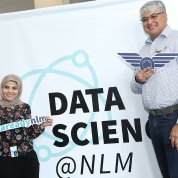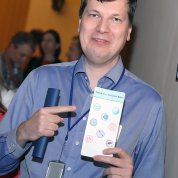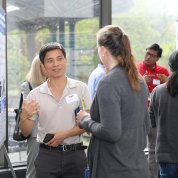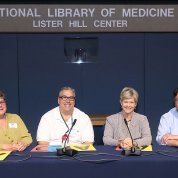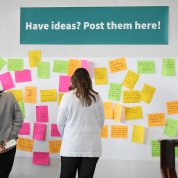HOME OF FIELD’S FUTURE
Passport to Data Science Discovery at NLM
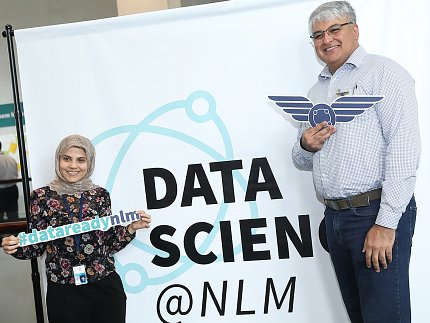
Photo: Chia-Chi Charlie Chang
One year after kicking off a data science training program, NLM celebrated by hosting a data science open house for its staff on Aug. 27.
During the half-day event with a flight theme, more than 300 employees collected a data science passport that could be stamped by checking out posters, participating in a trivia game, attending talks about data science, sharing suggestions and more.
In her introductory remarks as the NLM data science “pilot,” NLM director Dr. Patricia Flatley Brennan congratulated her staff for being data science frontiersmen and frontierswomen.
“Originally, folks thought about data science as a research tool. Now, we can see it’s part of our everyday activities,” she said. “At the National Library of Medicine, we are the future of data science.”
Aspects of that future were reflected in many of the event’s 77 posters, which included topics such as predicting coronary heart disease with a classification model, using natural language processing to identify chemicals in maternal milk and predictive modeling of drug reviews.
During the trivia game, emcee Dr. Maryam Zaringhalam posed multiple-choice questions on data science to four NLM leaders—Joyce Backus, Dr. Mike Huerta, Dr. Bart Trawick and Brennan.
They did well when asked about who can be a data scientist (everyone), an alternative way to say data wrangling (data munging) and the four Vs of big data (volume, velocity, variety and veracity). But they turned to the audience for help guessing how many times “data science” appears in the NLM strategic plan (62), which AI assistant was ranked the smartest by Forbes magazine in 2018 (Google assistant) and what percentage of the world’s data is currently analyzed (0.5 percent).
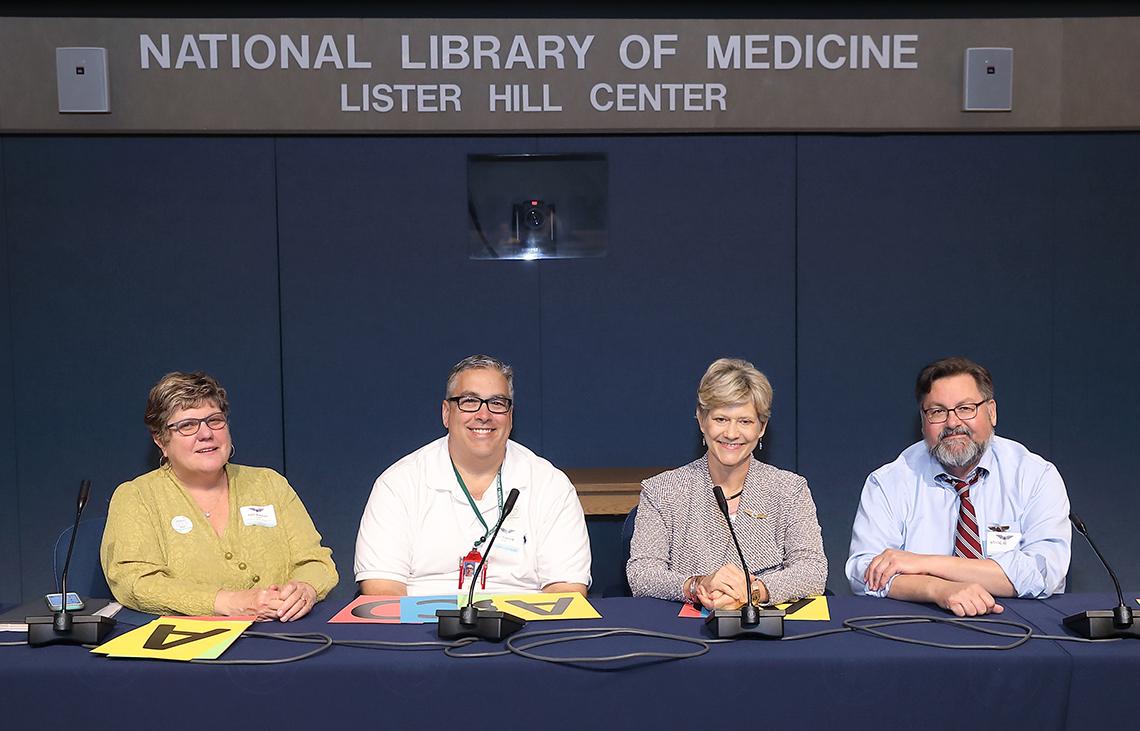
Photo: Chia-Chi Charlie Chang
In short speeches, Dr. Lisa Federer focused on developing the library workforce for data science; Dr. Rezarta Islamaj shared her research on biomedical literature; and Dr. Don Comeau spoke about his research on indexing for literature retrieval in PubMed.
The last speaker of the day, Dr. Dina Demner-Fushman, discussed what makes a good data science opportunity and how problems can be solved with data. “Do we have the skills?” she asked. “Increasingly, the answer is yes. From what I’ve seen today, we are ready to go forward.”
By the end of the event, more than 60 suggestions for a data science-filled future covered the idea wall. On bright yellow and magenta papers, the ideas included using data to enhance existing services, the need for more training, making data fairer and letting the world know that data science is cool. On Aug. 27, there was no doubt that data science is cool.

